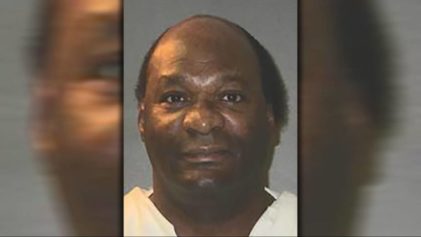Gosnell
As the murder trial of abortion doctor Kermit Gosnell continues today in Philadelphia, the case has increasingly become a debate over media coverage of abortion, as some anti-abortion groups claim Gosnell and his gruesome house of horrors isn’t a bigger national story because of the media’s bias in favor of abortion rights.
Prosecutors accuse the 72-year-old doctor of running a rogue clinic that ignored the state ban on third-term abortions and 24-hour waiting periods and maimed desperate, often poor women and teens by letting his untrained staff perform abortions and give anesthesia. He is accused of using outmoded drugs and unorthodox methods to force women to endure labor and deliver live babies who were killed with scissors by staff.
“The standard practice here was to slay babies. That’s what they did,” said Assistant District Attorney Joanne Pescatore in her opening statement, repeating a 2011 grand jury report that called the clinic “a house of horrors.”
Prosecutors say Gosnell profited handsomely — police found $250,000 in cash during a 2010 search of his home.
Gosnell is charged with killing seven babies born alive, and also with the death of Karnamaya Mongar, a 41-year-old refugee from Bhutan. According to the prosecution, Gosnell’s staff gave the 90-pound woman a lethal dose of anesthesia and painkillers during a 2009 abortion.
Dave Weigel of Slate theorized that political journalists “are, generally, pro-choice….There is a bubble. Horror stories of abortionists are less likely to permeate that bubble than, say, a story about a right-wing pundit attacking an abortionist who then claims to have gotten death threats … a reporter in the bubble is less likely to be compelled by the news of an arrested abortionist.”
So far, several patients and about a half dozen former employees have testified about the conditions at the clinic as prosecutors continue to call witnesses this week in their campaign to seek the death penalty against Gosnell.
In Gosnell’s defense, his lawyers say he is the target of a “prosecutorial lynching” in a case that is “elitist and racist.”
“This is a targeted, elitist and racist prosecution of a doctor who’s done nothing but give (back) to the poor and the people of West Philadelphia,” the fiery lawyer Jack McMahon said to the predominantly black jury in his opening arguments. “It’s a prosecutorial lynching of Dr. Kermit Gosnell.”
McMahon claimed that the prosecution was applying “Mayo Clinic” standards to Gosnell’s inner-city office in West Philadelphia. He said Gosnell performed as many as 1,000 abortions a year, and at least 16,000 over his long career, and had a lower-than-average complication rate.
Meanwhile, a report by the Guttmacher Institute finds that lawmakers around the country are now intent on banning abortions rather than simply regulating them.
During the first quarter of 2013, according to the report, 694 provisions on reproductive health and rights were introduced, and 93 of these had been approved by one or more legislative bodies. Guttmacher is a pro-abortion rights nonprofit organization that tracks abortion legislation and conducts quarterly analyses.
“Over the past two years, what we have seen is really a tidal wave of abortion restrictions across the country,” Elizabeth Nash, state issues manager at the Guttmacher Institute, told LiveScience.
Fourteen states have tried to ban abortion prior to “viability” — the point at which a fetus could survive outside the uterus. These measures take three forms: banning all abortions; banning abortions at some point in the first trimester of pregnancy; and banning abortions at 20 weeks after fertilization—all of which violate U.S. Supreme Court decisions ruling that states cannot impose an undue burden on women seeking an abortion before viability.
In a direct challenge to the Supreme Court rulings, Arkansas and North Dakota have banned most abortions that would occur during the first trimester of pregnancy. Arkansas has enacted laws to ban abortions at 20 weeks after fertilization, while nine other states have put forth similar laws.
“In a sense, we’re seeing a one-upmanship game,” Nash said.
According to Guttmacher, lawmakers in 10 states have sought to ban all or most abortions—in eight of them (Alabama, Iowa, Mississippi, North Dakota, Oklahoma, South Carolina, Virginia and Washington), lawmakers seek bans on the grounds that “personhood” begins at conception, which would effectively outlaw all abortions. In four states (Colorado, Florida, Iowa and North Dakota), lawmakers propose to ban abortion except for circumstances in which the mother’s life is endangered or rape or incest has occurred.


